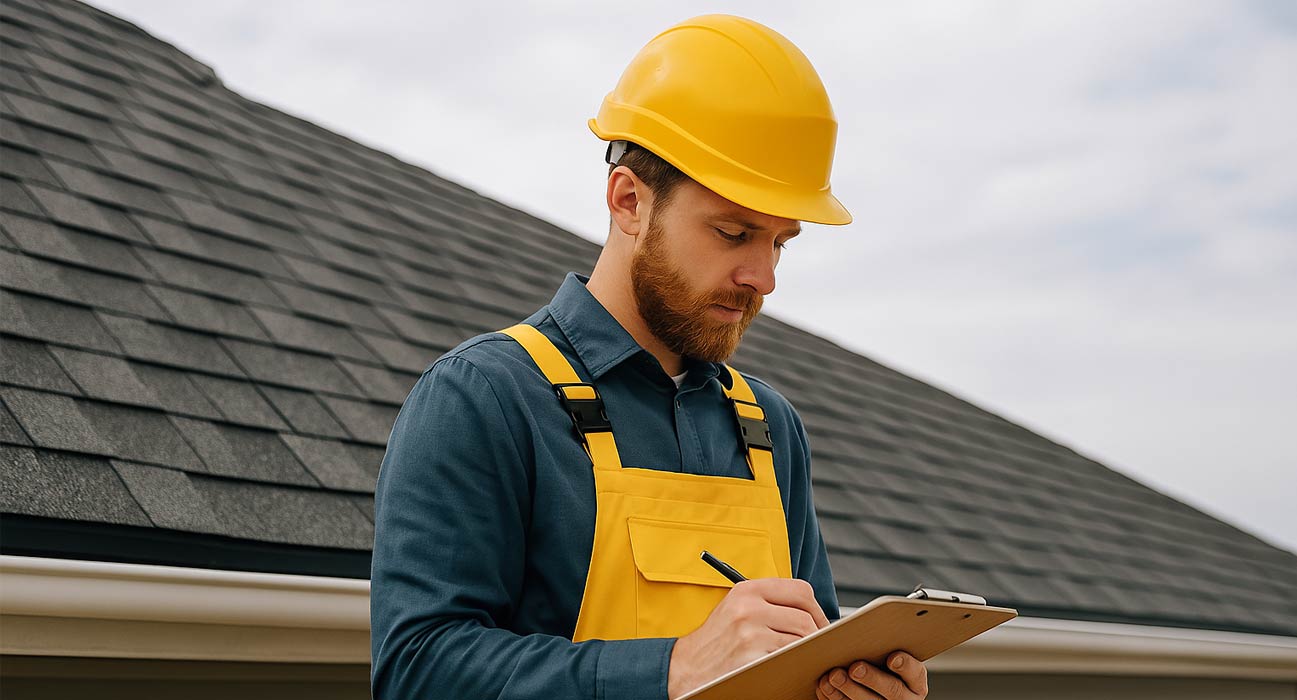How to Choose the Right Roofing Contractor: A Homeowner’s Guide
Choosing the right roofing contractor is one of the most important decisions you’ll make when it comes to protecting your home. Whether you’re replacing an aging roof, repairing storm damage, or building a new home, the contractor you hire can make or break the project. A great contractor brings experience, honesty, and professionalism to the job. The wrong one? They can cost you time, money, and peace of mind.
In this comprehensive guide, we’ll walk you through everything you need to know about choosing the right roofer — from what to look for and red flags to avoid, to questions you should always ask before signing a contract.
Why Your Roofing Contractor Matters
Your roof is one of your home’s most valuable and protective features. A poorly installed or repaired roof can lead to serious problems down the line, such as:
-
Leaks and water damage
-
Structural issues
-
Mold growth
-
Higher energy bills
-
Reduced property value
Choosing the right roofing contractor ensures that your roof is installed correctly, lasts longer, and performs as expected in all types of weather.
Top Qualities of a Great Roofing Contractor
There are thousands of roofing companies out there, but not all are created equal. Look for these key qualities when making your decision:
1. Licensed and Insured
A reputable roofing contractor should carry all necessary licenses for your state and local area. They should also have both general liability insurance and workers’ compensation coverage to protect you and their crew.
2. Local Experience
Choose a company with experience working in your region. Local contractors understand the specific weather patterns, building codes, and permit requirements in your area.
3. Strong Reputation
Look for companies with positive reviews on Google, Yelp, or the Better Business Bureau. Ask neighbors or friends if they’ve worked with the contractor before.
4. Solid Communication
From the first phone call to the final walk-through, a professional roofer will keep you informed every step of the way.
5. Written Estimates
Verbal quotes don’t cut it. You should always receive a written estimate that outlines costs, materials, timelines, and payment terms.
Where to Start Your Search
Ask for Referrals
Word of mouth is one of the most effective ways to find a trustworthy contractor. Ask friends, family, or neighbors who they’ve used and if they’d hire them again.
Search Online
Use search engines and local directories to find roofers in your area. Look for verified reviews and companies with a solid web presence.
Check Trade Associations
Organizations like the National Roofing Contractors Association (NRCA) or your local Chamber of Commerce can be helpful resources.
Questions to Ask Before Hiring a Roofing Contractor
Once you’ve narrowed down your list of potential contractors, here are essential questions to ask during your initial conversations:
-
Are you licensed and insured?
-
How long have you been in business?
-
Do you have references from recent jobs?
-
What kind of warranties do you offer?
-
Who will be on-site supervising the work?
-
What happens if there’s unexpected damage or delays?
-
Do you provide a written estimate and contract?
-
Will you pull permits if required?
A reputable contractor will answer these questions confidently and without hesitation.
Red Flags to Watch Out For
Unfortunately, not every contractor has your best interests in mind. Keep an eye out for these warning signs:
1. High-Pressure Sales Tactics
If someone tries to rush you into signing a contract or says “this deal is only good today,” walk away.
2. Lack of Insurance or Licensing
If a contractor can’t provide proof of insurance or licensure, they shouldn’t be doing work on your property.
3. Cash-Only Payments
This often signals a scam. Always insist on proper receipts and documentation.
4. Vague Contracts
If the quote or contract doesn’t include material types, brand names, or timelines, it’s a sign of inexperience or deception.
5. Storm Chasers
After major weather events, some companies travel from state to state looking to make a quick profit. Always hire local.
Understanding Roofing Estimates
Before signing any agreement, make sure you understand your roofing estimate. A complete estimate should include:
-
Scope of work
-
Types and brands of materials
-
Estimated timeline
-
Clean-up and disposal details
-
Payment terms and deposit requirements
-
Warranty information
Do not be afraid to ask questions or request clarification before moving forward.
Roofing Warranties: What You Need to Know
A quality roofing contractor will stand behind their work. There are typically two types of warranties to be aware of:
1. Manufacturer’s Warranty
This covers the roofing materials themselves. Most shingles come with warranties ranging from 25 years to a lifetime, depending on the product.
2. Workmanship Warranty
Offered by the contractor, this covers installation and labor. It can range from one year to a lifetime depending on the company.
Always get these warranties in writing and keep them on file with your home records.
How to Compare Multiple Roofing Quotes
Don’t automatically go with the lowest price. Here’s how to make an apples-to-apples comparison:
-
Are the materials and brands the same across estimates?
-
Do the timelines and labor costs align?
-
Are all warranties equal?
-
Does the contractor have better reviews or references?
A slightly higher price from a more experienced, trustworthy contractor is usually the better investment.
The Importance of Communication and Professionalism
How a company communicates with you from day one says a lot. Are they responsive to calls or emails? Do they show up on time for estimates? Are they respectful and transparent?
Professionalism isn’t just about roofing skills — it’s about customer service, reliability, and trust.
What to Expect During the Roofing Process
A reputable contractor will walk you through each phase of the project. Here’s a quick breakdown:
-
Inspection & Proposal
-
Contract Signing
-
Scheduling & Permits
-
Material Delivery
-
Old Roof Removal
-
Installation of New Roof
-
Site Cleanup
-
Final Inspection & Walkthrough
Throughout the process, your contractor should provide updates and address any concerns you may have.
Post-Project: What Should Happen After the Job is Done
Once the work is complete, a few key things should happen:
-
A final inspection and walkthrough with you
-
Delivery of warranty documents
-
Full cleanup of the site
-
Final invoice matching the original agreement
If anything is unclear or not done to your expectations, now is the time to speak up — and a good contractor will be happy to make it right.
Why Texas Roof Masters is the Right Contractor for You
At Texas Roof Masters, we know how important it is to earn your trust. Our team brings years of experience, a commitment to craftsmanship, and genuine care for our customers. Here’s why homeowners across Dallas Fort Worth choose us:
-
Fully licensed and insured
-
Local experts who understand Texas weather
-
Honest estimates and clear communication
-
Premium materials from trusted brands
-
Warranties that back our work
-
500+ satisfied clients and growing
-
A reputation built on referrals and long-term trust
Whether it’s a minor repair or a complete roof replacement, we treat every project like it’s our own home.
Final Thoughts: Choose With Confidence
Your roof is a major investment, and choosing the right contractor is the key to getting the most out of it. By doing your research, asking the right questions, and working with a proven local company like Texas Roof Masters, you can be confident that your home is in good hands.
Ready to get started? Contact us today for a free, no-obligation roofing estimate, and let’s talk about what you need.


